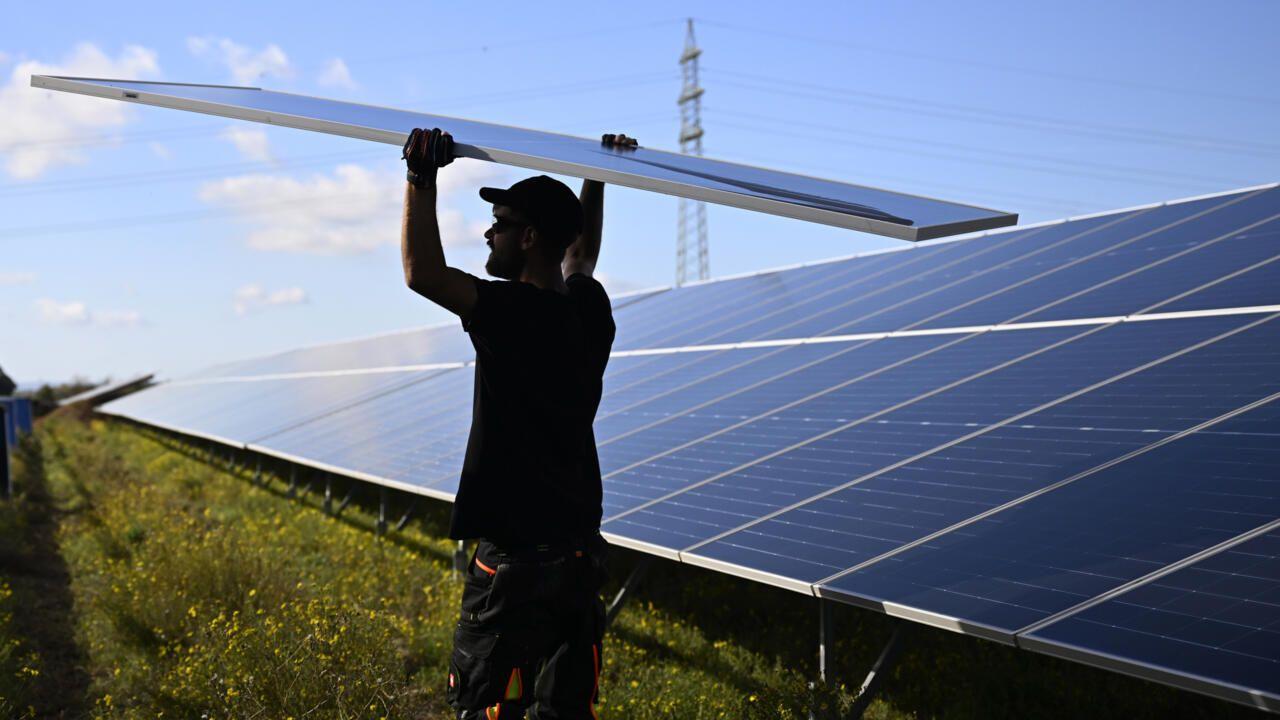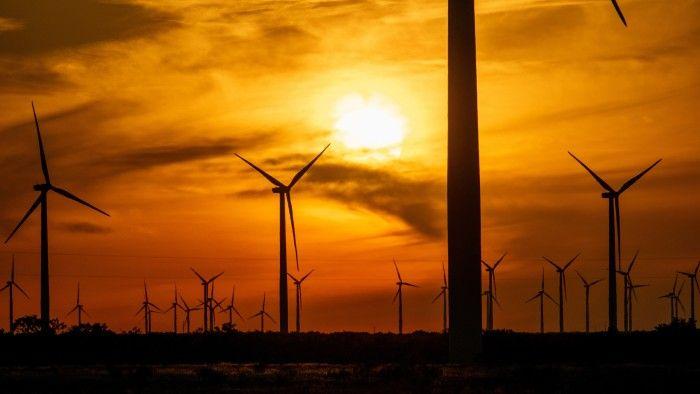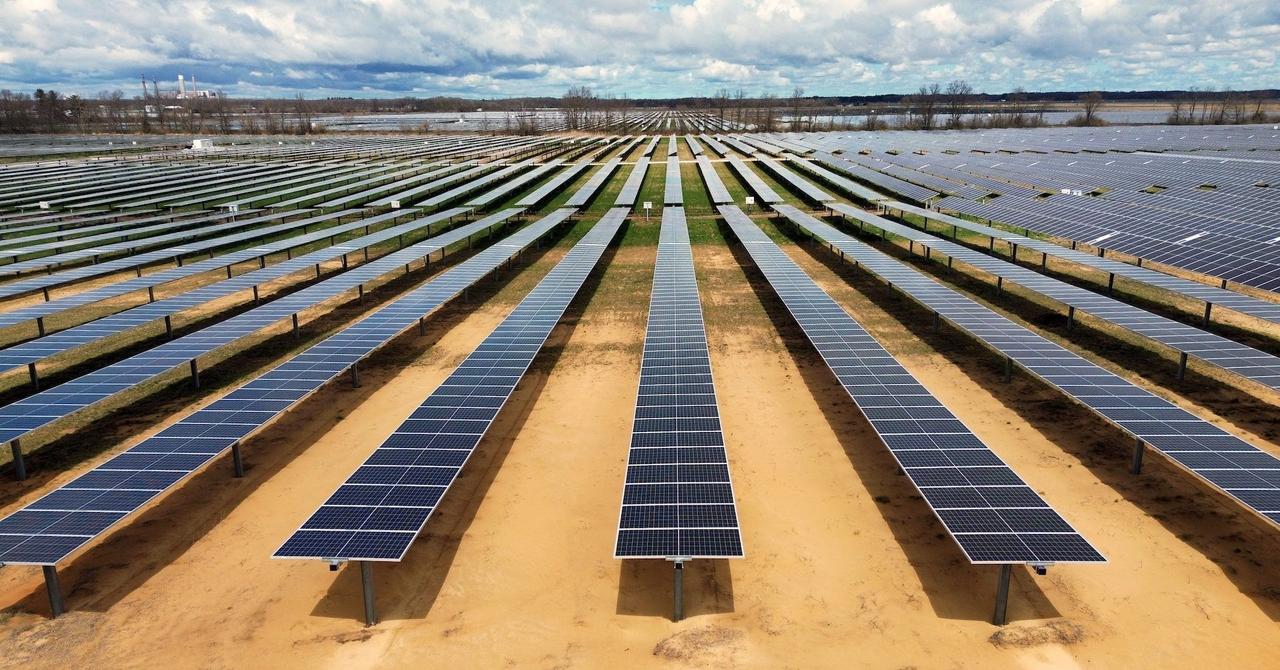Clean Energy Investment Soars to Record Levels, Driven by AI and Data Center Demand
2 Sources
2 Sources
[1]
Clean energy investment rising despite economic uncertainty: IEA
Paris (AFP) - Investment in clean energy technologies is set to strike a record this year despite global economic uncertainty, double the spending on fossil fuels that will dip for the first time since 2020, the International Energy Agency said Thursday. While the Trump administration has been hostile to renewable energy sources and trumpets boosting oil production, the IEA said security concerns as well as rising demand for electricity -- including from artificial intelligence and data centres -- is driving investment in clean energy sources. "Amid the geopolitical and economic uncertainties that are clouding the outlook for the energy world, we see energy security coming through as a key driver of the growth in global investment this year to a record $3.3 trillion as countries and companies seek to insulate themselves from a wide range of risks," Executive Director Fatih Birol said as the IEA published its latest annual World Energy Investment report. It expects investment in clean technologies, including nuclear and electricity distribution grids, to hit a record $2.2 trillion this year. Meanwhile, investment in oil, natural gas and coal is set to dip to $1.1 trillion, as companies react to falling prices and lower demand expectations. Most of drop is due to investment in US oil production, while investment in liquefied natural gas (LNG) projects there and elsewhere is expected to lead to the largest-ever capacity growth in 2026-2028. Since returning to the White House, Trump has slapped a 10 percent tariff on most trading partners, alongside higher rates on dozens of economies, including China and the European Union, that have since been reduced or put on pause until early July while negotiations are held. Earlier this week the OECD slashed its annual global growth forecast, warning that Trump's tariffs blitz would stifle the world economy. But energy investments haven't suffered yet. "The fast-evolving economic and trade picture means that some investors are adopting a wait-and-see approach to new energy project approvals, but in most areas we have yet to see significant implications for existing projects," Birol said. US renewables to 'level off' But the IEA said the shift in US policies would impact investment there in renewables. "Spending on renewables and low-emissions fuels in the United States almost doubled over the last 10 years but is now set to level off as supportive policies are scaled back," it said. The report found the rapid rise in electricity demand -- for industry, cooling, electric mobility, data centres and AI -- was also shaping investment trends. The sector is expected attract $1.5 trillion in investments this year, 50 percent more than fossil fuels. The IEA also noted that nuclear energy has been making a comeback as electricity demand from data centres risks doubling in the next five years. While renewables are expected to meet most of that additional demand, the steady supply that nuclear plants offer have prompted a number of tech companies to enter into supply agreements. But the Paris-based IEA, which advises industrial nations on energy policy, warned that spending on electricity grids was not keeping up with investment into generation. In addition to lengthy permitting procedures, grid expansion was also being held back by tight supply of transformers and cable, it found. Despite the rising levels of investment in renewable energy production, the IEA said it must double to achieve the goal set at the 2024 UN climate conference: a tripling of the installed renewable capacity by 2030. And the urgent demand for power means new plants using dirty fuels such as coal are still being built, with a four percent increase in investment expected this year. "In the face of rapid electricity demand growth and concerns linked to security of supply, such as various geopolitical risks as well as uncertainties over hydropower output, China and India are approving increasing amounts of new coal-fired power," said the IEA report.
[2]
Clean energy investment rising despite economic uncertainty: IEA
PARIS: Investment in clean energy technologies is set to strike a record this year despite global economic uncertainty, double the spending on fossil fuels that will dip for the first time since 2020, the International Energy Agency said Thursday. While the Trump administration has been hostile to renewable energy sources and trumpets boosting oil production, the IEA said security concerns as well as rising demand for electricity -- including from artificial intelligence and data centres -- is driving investment in clean energy sources. "Amid the geopolitical and economic uncertainties that are clouding the outlook for the energy world, we see energy security coming through as a key driver of the growth in global investment this year to a record $3.3 trillion as countries and companies seek to insulate themselves from a wide range of risks," Executive Director Fatih Birol said as the IEA published its latest annual World Energy Investment report. It expects investment in clean technologies, including nuclear and electricity distribution grids, to hit a record $2.2 trillion this year. Meanwhile, investment in oil, natural gas and coal is set to dip to $1.1 billion, as companies react to falling prices and lower demand expectations. Most of drop is due to investment in US oil production, while investment in liquefied natural gas (LNG) projects there and elsewhere is expected to lead to the largest-ever capacity growth in 2026-2028. Since returning to the White House, Trump has slapped a 10 percent tariff on most trading partners, alongside higher rates on dozens of economies, including China and the European Union, that have since been reduced or put on pause until early July while negotiations are held. Earlier this week the OECD slashed its annual global growth forecast, warning that Trump's tariffs blitz would stifle the world economy. But energy investments haven't suffered yet. "The fast-evolving economic and trade picture means that some investors are adopting a wait-and-see approach to new energy project approvals, but in most areas we have yet to see significant implications for existing projects," Birol said. US renewables to 'level off' But the IEA said the shift in US policies would impact investment there in renewables. "Spending on renewables and low-emissions fuels in the United States almost doubled over the last 10 years but is now set to level off as supportive policies are scaled back," it said. The report found the rapid rise in electricity demand -- for industry, cooling, electric mobility, data centres and AI -- was also shaping investment trends. The sector is expected attract $1.5 trillion in investments this year, 50 percent more than fossil fuels. The IEA also noted that nuclear energy has been making a comeback as electricity demand from data centres risks doubling in the next five years. While renewables are expected to meet most of that additional demand, the steady supply that nuclear plants offer have prompted a number of tech companies to enter into supply agreements. But the Paris-based IEA, which advises industrial nations on energy policy, warned that spending on electricity grids was not keeping up with investment into generation. In addition to lengthy permitting procedures, grid expansion was also being held back by tight supply of transformers and cable, it found. Despite the rising levels of investment in renewable energy production, the IEA said it must double to achieve the goal set at the 2024 UN climate conference: a tripling of the installed renewable capacity by 2030. And the urgent demand for power means new plants using dirty fuels such as coal are still being built, with a four percent increase in investment expected this year. "In the face of rapid electricity demand growth and concerns linked to security of supply, such as various geopolitical risks as well as uncertainties over hydropower output, China and India are approving increasing amounts of new coal-fired power," said the IEA report.
Share
Share
Copy Link
The International Energy Agency reports a surge in clean energy investment, reaching $2.2 trillion in 2025, outpacing fossil fuel spending. This growth is partly attributed to increased electricity demand from AI and data centers.
Record-Breaking Clean Energy Investment
In a landmark shift for the global energy landscape, investment in clean energy technologies is poised to reach an unprecedented $2.2 trillion in 2025, according to the International Energy Agency's (IEA) latest World Energy Investment report
1
2
. This figure not only represents a new record but also doubles the investment in fossil fuels, which is expected to decline for the first time since 2020 to $1.1 trillion.Driving Factors: Security and AI Demand
The surge in clean energy investment is attributed to two primary factors: energy security concerns and the rapidly increasing demand for electricity. IEA Executive Director Fatih Birol highlighted that amid geopolitical and economic uncertainties, countries and companies are seeking to insulate themselves from various risks, driving global investment to a record $3.3 trillion
1
2
.
Source: ET
Notably, the rising electricity demand from artificial intelligence (AI) and data centers is playing a significant role in shaping investment trends. The electricity sector is expected to attract $1.5 trillion in investments this year, 50% more than fossil fuels
1
2
.Nuclear Energy's Comeback
The IEA report also notes a resurgence in nuclear energy investment. With electricity demand from data centers projected to double in the next five years, nuclear power's ability to provide steady supply has attracted several tech companies to enter into supply agreements
1
2
. This trend underscores the growing intersection between the tech industry and energy sector.US Policy Shift and Global Implications
While global clean energy investment is on the rise, the report indicates that US investment in renewables may level off due to scaled-back supportive policies
1
2
. This shift in US policy, coupled with recent tariff impositions by the Trump administration, has created some uncertainty in the global energy market.
Source: France 24
Related Stories
Challenges and Future Outlook
Despite the positive trends in clean energy investment, the IEA warns that current levels are insufficient to meet climate goals. Investment must double to achieve the target set at the 2024 UN climate conference: tripling installed renewable capacity by 2030
1
2
.Moreover, the urgent demand for power is still driving investment in fossil fuel plants, particularly in rapidly growing economies. The report notes a 4% increase in coal plant investment, with China and India approving new coal-fired power projects due to energy security concerns and uncertainties in hydropower output
1
2
.Grid Infrastructure Lagging Behind
The IEA also raised concerns about the mismatch between investment in power generation and grid infrastructure. Spending on electricity grids is not keeping pace with the investment in generation capacity. This lag is attributed to lengthy permitting procedures and supply chain issues, particularly shortages of transformers and cables
1
2
.As the world navigates this complex energy transition, the interplay between clean energy technologies, AI-driven demand, and geopolitical factors will continue to shape the global energy investment landscape in the coming years.
References
Summarized by
Navi
Related Stories
UN Reports: Renewable Energy Reaches Global Tipping Point, Outcompeting Fossil Fuels
23 Jul 2025•Technology

Trump's War on Renewables: Impact on Energy Prices and AI Power Demand
22 Aug 2025•Policy and Regulation

Senate Bill Threatens Clean Energy Future, Raising Concerns for AI Industry's Power Needs
29 Jun 2025•Policy and Regulation

Recent Highlights
1
OpenAI secures $110 billion funding round from Amazon, Nvidia, and SoftBank at $730B valuation
Business and Economy

2
Pentagon accepts OpenAI's autonomous weapons restrictions after blacklisting Anthropic
Policy and Regulation

3
Trump orders federal agencies to ban Anthropic after Pentagon dispute over AI surveillance
Policy and Regulation





